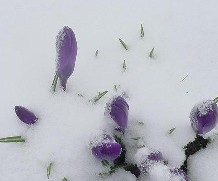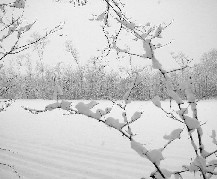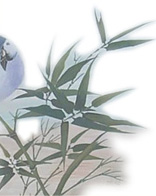|
|
|
 |
English Lesson 009: How To Translation A Peom (5)
--By Mr. Jim Broadbent (Canada)
|
 |
 Hi, friends, I am very glad to receive to some different onions about Chinese poem translation. I do think, the different voice is just something to push us to make our work enter a higher level and higher quality. :-) Hi, friends, I am very glad to receive to some different onions about Chinese poem translation. I do think, the different voice is just something to push us to make our work enter a higher level and higher quality. :-)
Here is a wonderful letter from Mr. Jim Broadbent. I do feel it is very meaningful for me to improve my English and also it is meaning for friends to understand Chinese language and culture. So, I would like to publish some of my different from this article here as well, and hope you are interested in it and take part our discussion in the forum as well. :-)
Hi Shirley;
I think this is a beautiful poem but I do not like either you translation or that of the Beijing Star-light Translation Center. Both translations are too literal.
You have called this poem a "juju" but you didn't really define that term. I don't get the impression that this is a "farewell" that one would give to someone after visiting someone on vacation. The imagery in this poem suggests to me that it is a eulogy, a tribute, in the form of a poem that perhaps was given at a funeral.
There is much imagery that suggests this to me....
the setting sun in yellow clouds - I know that yellow is a color with special meaning to Chinese people and the setting sun indicates the death of a day.
The north wind and snow - suggests winter or the end of the seasons
The road ahead - suggests life after death to me.
Finally I believe that the color "white" is the color of death to Chinese people. So the reference to a "white sun" is a reference to a dying sun, in keeping with the sun being in twilight.
The poet is comforting his friend by letting him know that his name will be remembered for a long time.
These translated lines by yourself and Beijing Star-light Translation Center are NOT correct.
and the snow is dancing quickly.
to send off the wild geese flying to the south.
The cold wind blows the wild geese in drifting snow.
They make no sense as they are written. But think of what "wild geese" look like. They are big white fluffy birds. So the poet is comparing the snow to the flight of a flock of wild geese. (again another reference to the color white)
So...as I said earlier, I believe this to be a eulogy to a friend. This is my translation:
Farewell to Dong Da
The white sun settles among the high yellow twilight clouds,
The north wind blows the snow like flying wild geese,
But don't worry about the road ahead my friend,
For everyone in the our native land knows of you.
I hope you like this translation. I think it is quite beautiful.
Take care
Jim
Responding By Shirley: Hi, Mr. Jim Broadbent, thanks a lot for publishing your opinions about the poem of Bie Dongda.
First of all, I do feel that your translation is wonderful one and it is more rhyme and more English. :-) I do appreciate your patient directions and kind help indeed.
Secondly, I have some different opinions about this poem as well. :-)
Because Mr. Dong Lanting -- Dong Da was never dead when Gao Shi wrote this poem. So, this is not a poem that to send a friend who has been dead, but a poem that to send a friend to leave from somewhere to the other place. This can be proved by many Chinese history books and Chinese classical poem history. :-)
Thirdly, yellow in China is not only as you said to be used for a dead person as white. Yellow is also meaning honor and right. There is only emperor and royal family can use it in the ancient China. So, in Chinese, yellow is never only meaning death. :-)
Fourthly, road ahead, is not meaning "his memory after his death" It just means the coming road of the friend's.
Fifthly, the white sun, is not mean anything relative to death here, just mean sun. We have remembered the other poem by Wang Zhihuan "White Sun disappears near the mountain" it is same. :-) There are many examples in Chinese classical poems to say sun as White Sun..
Anyway, I would really like to thank you for your good opinions, comments and imagination about this poem. I do appreciate what you did and also I do hope more friends to take part in our discussion. :-)
 If you have any questions, comments and suggestions, please write to shirley@ebridge.cn , or shirleyz004@yahoo.com, You are welcomed. If you have any questions, comments and suggestions, please write to shirley@ebridge.cn , or shirleyz004@yahoo.com, You are welcomed.
--Shirley
Fri, Dec 9, 2005
|
|
|
|
| |
| |
|

